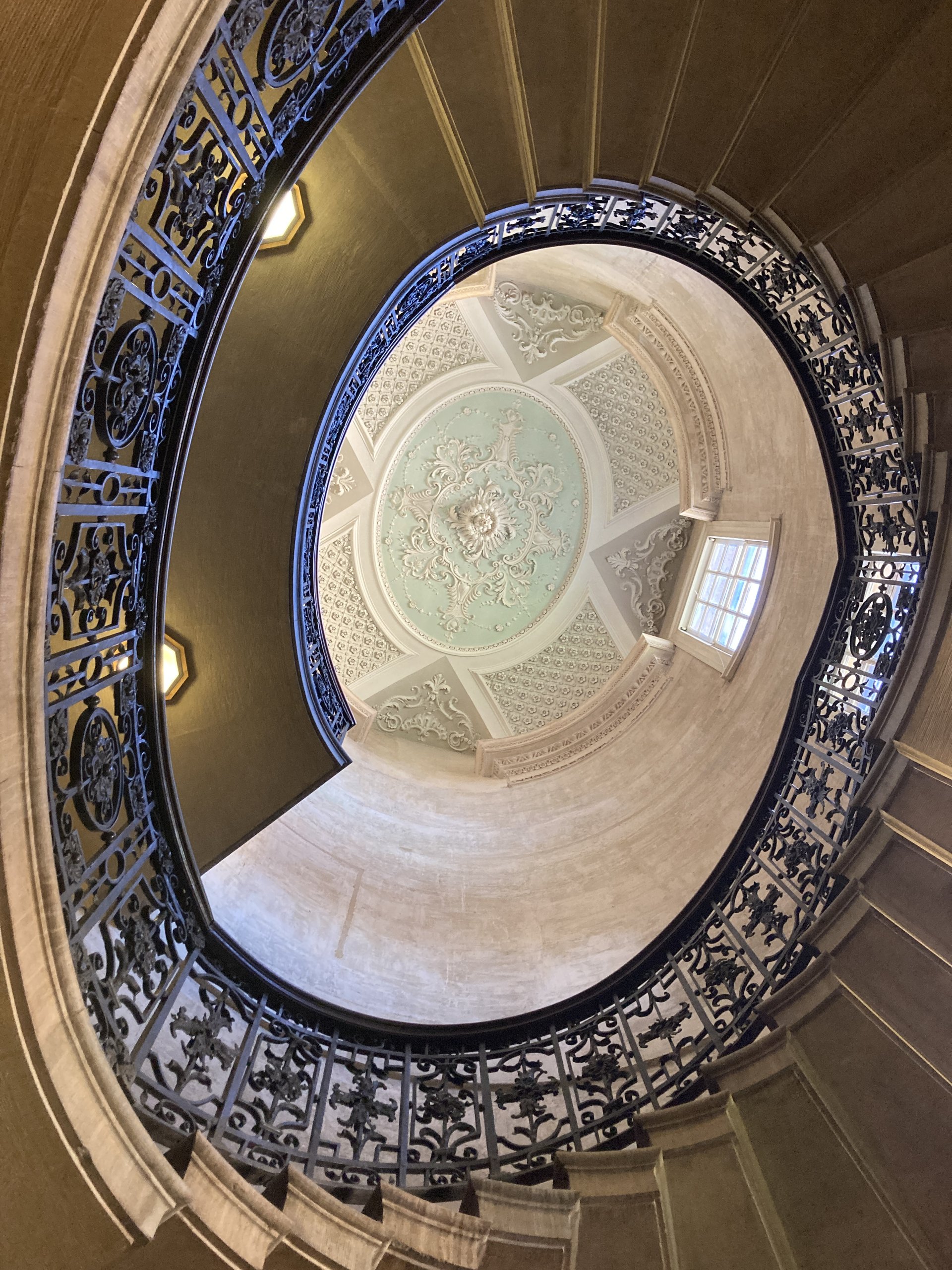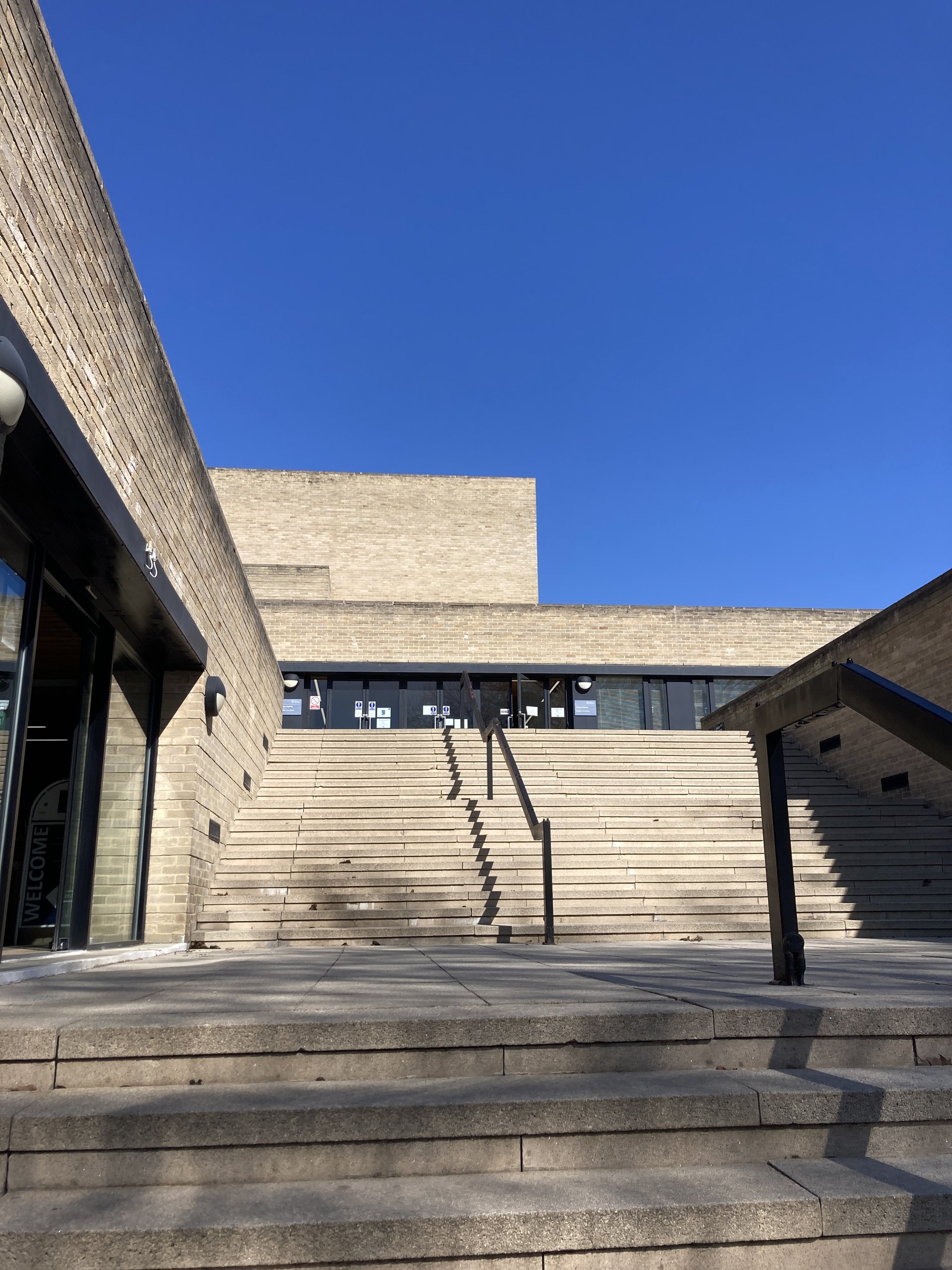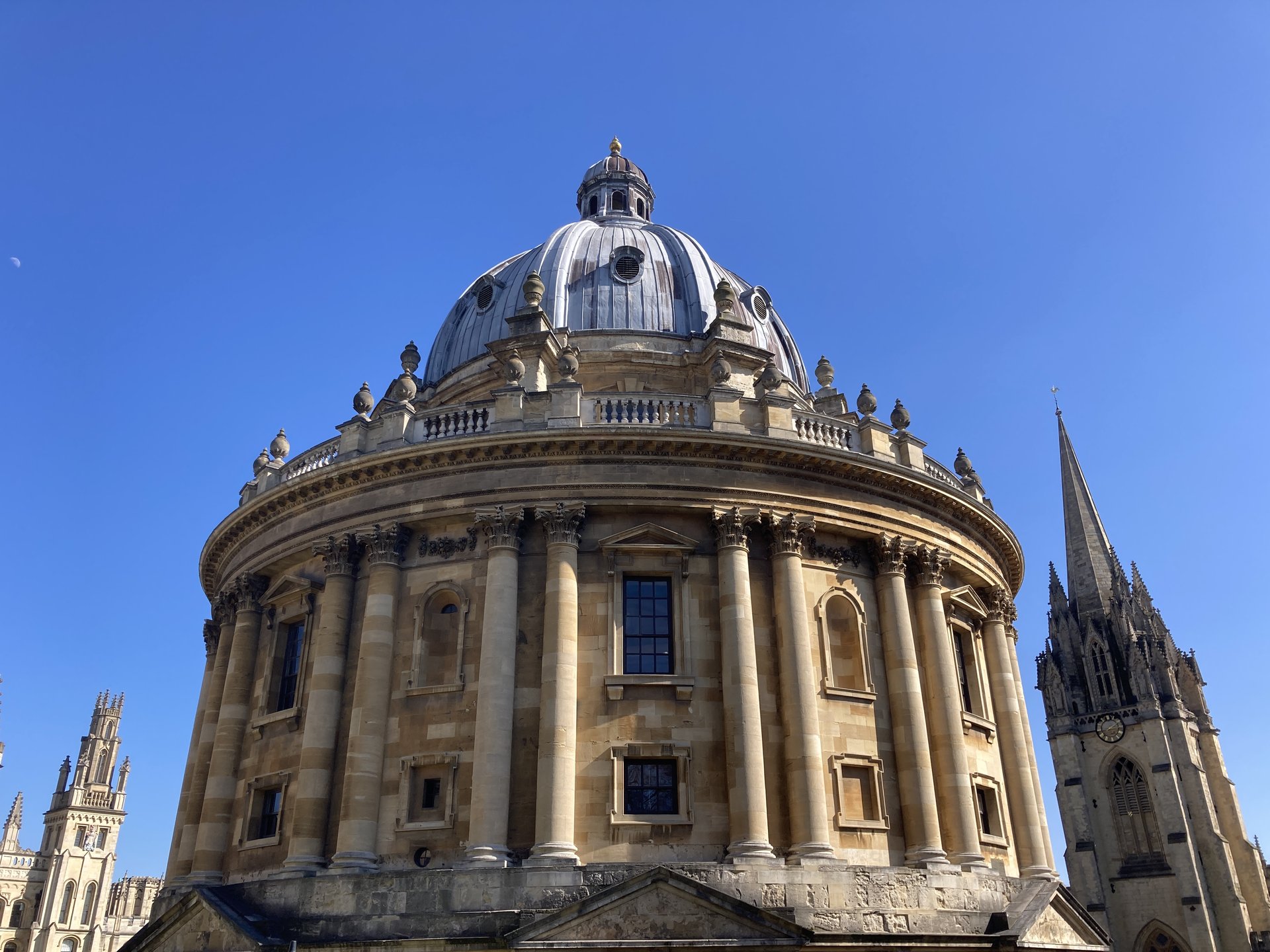Research at the intersection of Jena and Oxford
Oxford has long been my academic base and personal home, so after three months in Germany, it felt only natural to return for a month-long research trip. Scheduling my stay to coincide with Oxford’s term break meant I could make full use of my Bodleian Reader Card across the university libraries. I climbed the spiral staircase of the Radcliffe Camera, squeezed past tourists to reach the Bodleian Old Library, and sat almost alone in the beautifully brutalist St Cross building. The days flew by as I pored over articles, chapters, and books related to my research on mutual influence between Old English and Old Saxon poetry. Highlights included Fletcher’s The Conversion of Europe, which details the Anglo-Saxon missions to the continent and the ‘Saxon Wars’ against the Franks; Vickrey’s Genesis B and the Comedic Imperative, a richly perceptive study from one of the poem’s foremost scholars; and St John’s Genesis Myth in Beowulf and Old English Biblical Poetry, a recent publication that has brought my bibliographical knowledge right up to date. I also examined MS Junius 103, a notebook in which the pioneering 17th-century philologist Franciscus Junius had copied lines of Heliand from the Anglo-Saxon manuscript Cotton Caligula A VII. This, however, was just the beginning of my research trip.
On April 16–17 I attended the conference Unlocking the Exeter Book, which focussed on the most compendious and miscellaneous of the four major codices of Old English poetry. Among many fascinating talks, several in particular enriched my interpretation of the Old Saxon Genesis, especially Adam’s postlapsarian lament and remonstrance of Eve. Eleni Ponirakis’ explication of theoria physikē – spiritual contemplation of the natural world – appears to be subverted in Adam’s observation of the fallen world’s heat, cold, and storms. Meghan Cavell and Jennifer Neville’s reinterpretation of Riddle 5 as the monologue of a damned soul or ‘individual given up to despair’ echoes Adam’s hopeless estrangement from God. And James Paz’s eco-feminist, creative-critical presentation helped me recognise a link between Adam’s frustration with Eve’s ‘uncontrolled’ transgression and the fallen world’s ‘uncontrollable’ climate. The conference also gave me the chance to meet leading figures in Old English and Old Saxon biblical poetry, including Thomas Bredehoft, Daniel Anlezark, and John D. Niles.
While advancing my research, the trip also helped reinforce the connections I have been building between the University of Oxford and Friedrich-Schiller-Universität Jena. I met with my external supervisor, Francis Leneghan, to discuss my research, and will soon host him in Jena for a meeting with my supervisors Katharina Bracht and Sophie Marshall. I reconnected with Michael Angerer, Cosima Gillhammer, and Henrike Lähnemann – all Oxford-based scholars of German origin – for conversations that helped shape my research further. I am already planning to return to Oxford in June to lead a Tolkien Seminar on my forthcoming publication ‘Imitative Translations of Beowulf: Tolkien, Lehmann, McCully’. In the longer term, I hope to attend and even present at next year’s conference ‘New Directions in Old English Prose’. In the even longer term, I have been invited to speak at a symposium on the Bodleian’s Junius manuscripts in 2027. My research moves between Old Saxon and Old English history, language, and literature as well as between the scholarly communities of Jena and Oxford.


